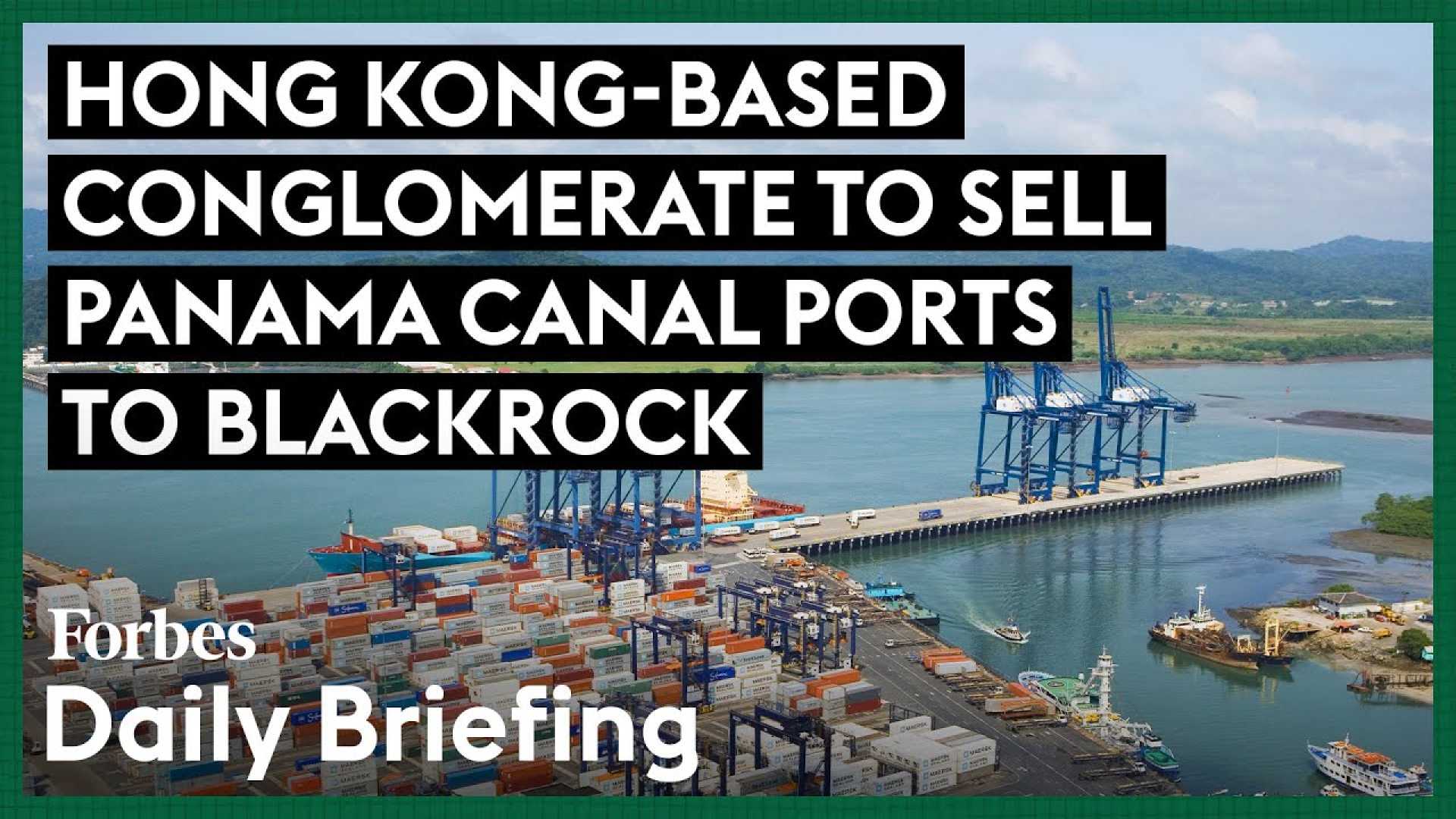Business
China’s Antitrust Review Delays $23 Billion Panama Canal Ports Sale

HONG KONG — A $23 billion deal for two key ports along the Panama Canal is facing uncertainty as pressure from Beijing delays its finalization. CK Hutchison, a private firm from Hong Kong, was slated to sign the agreement with a consortium led by BlackRock last week, but China‘s market regulator instigated a review after state media criticized the transaction as a threat to the country’s interests.
The deal involves Hutchison Ports’ Balboa and Cristóbal ports, significant locations for trade, through which approximately 40% of U.S. trade passes.
In January, former President Trump claimed without evidence that China exerted control over the canal, pledging that the U.S. would reclaim it as a matter of national security. Following his inauguration,, U.S. Defense Secretary Pete Hegseth echoed this sentiment during his visit to Panama, emphasizing the U.S. commitment to confront perceived threats to the canal from China.
China’s Foreign Affairs Ministry responded sharply to Hegseth’s statements, describing them as “irresponsible” and warned against U.S. interference in the canal. A spokesperson urged the U.S. to reflect on its past actions in Latin America rather than slandering China.
The Panamanian government, which has controlled the canal since the U.S. handed it over in 1999, also rejected claims that China interfered with canal operations, reiterating their constitutional commitment to neutrality. However, to placate concerns from Washington, Panama initiated an audit of CK Hutchison’s operations that revealed potentially unfavorable terms costing the nation $1.3 billion in revenue.
The audit’s findings have prompted Panama’s comptroller general to announce intentions to sue officials involved in renewing Hutchison’s contracts. This revelation surfaced amid a backdrop of heightened scrutiny on foreign investment in the region.
Trump lauded the potential sale during a recent rally, framing it as a strategic success for his administration’s efforts to diminish Chinese influence in the Western Hemisphere. Christopher Hernandez-Roy, a senior fellow at the Center for Strategic and International Studies, remarked that it represents a crucial geopolitical maneuver for the U.S.
Despite CK Hutchison being a private entity, China’s reaction highlights a broader concern regarding foreign investments that could be perceived as threats to its interests. Guo Jiakun, a spokesman for China’s Foreign Affairs Ministry, affirmed China’s stance against economic coercion and affirmed intentions to protect its rights.
The anticipated signing of the deal was originally set for April 2 but has since been postponed. Analysts suggest the delay signals China’s desire to leverage the transaction as a bargaining tool amidst ongoing U.S.-China trade tensions.
Angela Zhang, a law professor at the University of Southern California, indicated that China’s antitrust review illustrates its intention to assert jurisdiction over transactions that involve Hong Kong-listed firms. Despite CK Hutchison’s independent operations, the review may complicate the sale’s progression.
Should the deal collapse, analysts forecast considerable pressure on Panama to reconsider Hutchison’s port operations that began in 1997, viewed as a defeat for the nation’s economic aspirations. Nonetheless, CK Hutchison is anticipated to pursue the sale, drawing on the conglomerate’s substantial financial independence from the Chinese government.
There remains cautious optimism that the deal could proceed despite the geopolitical undertones, as HK-based observers contend that financial diversification is vital amidst rising tensions with U.S. policy in the region.












